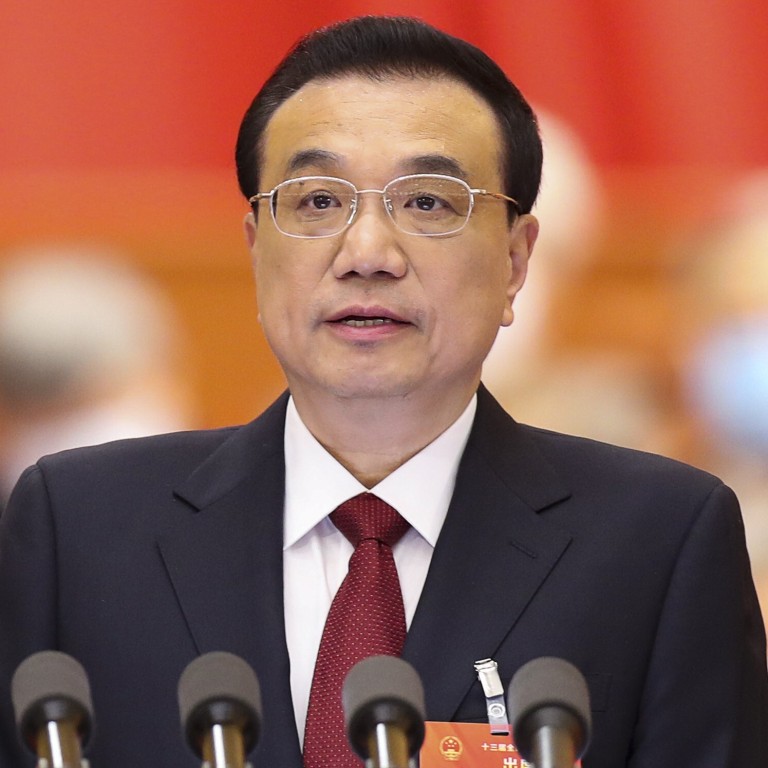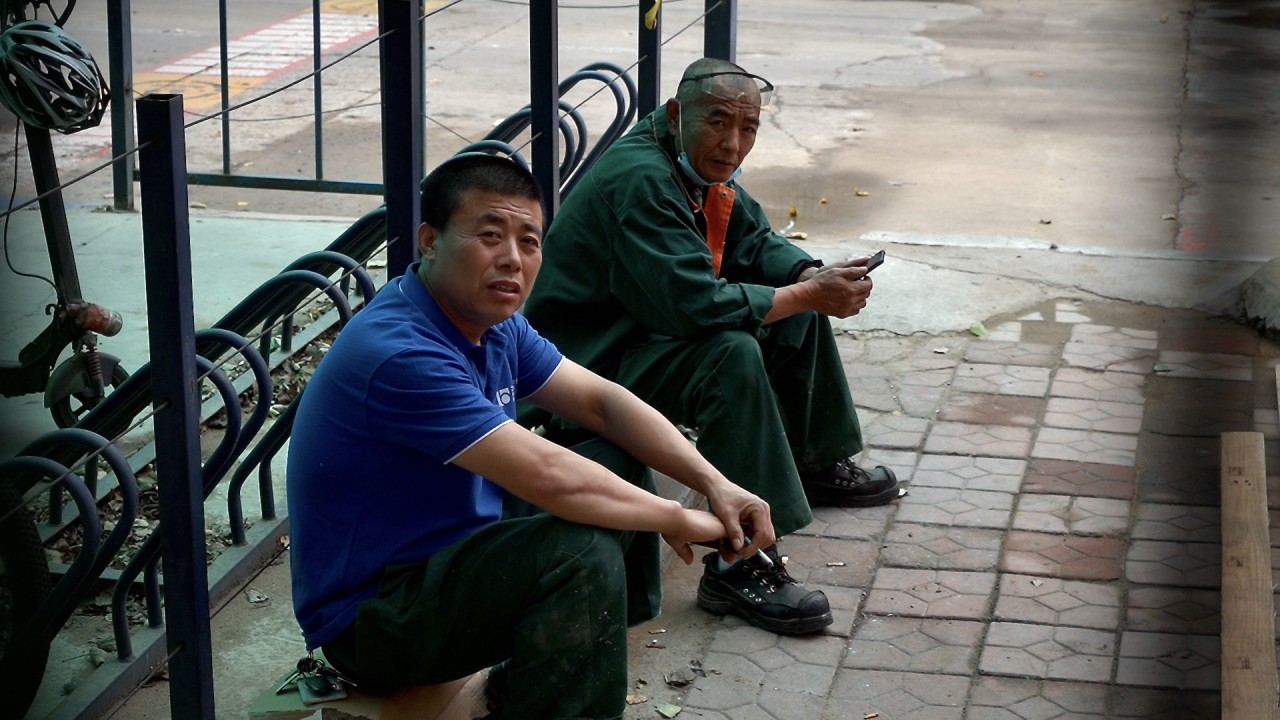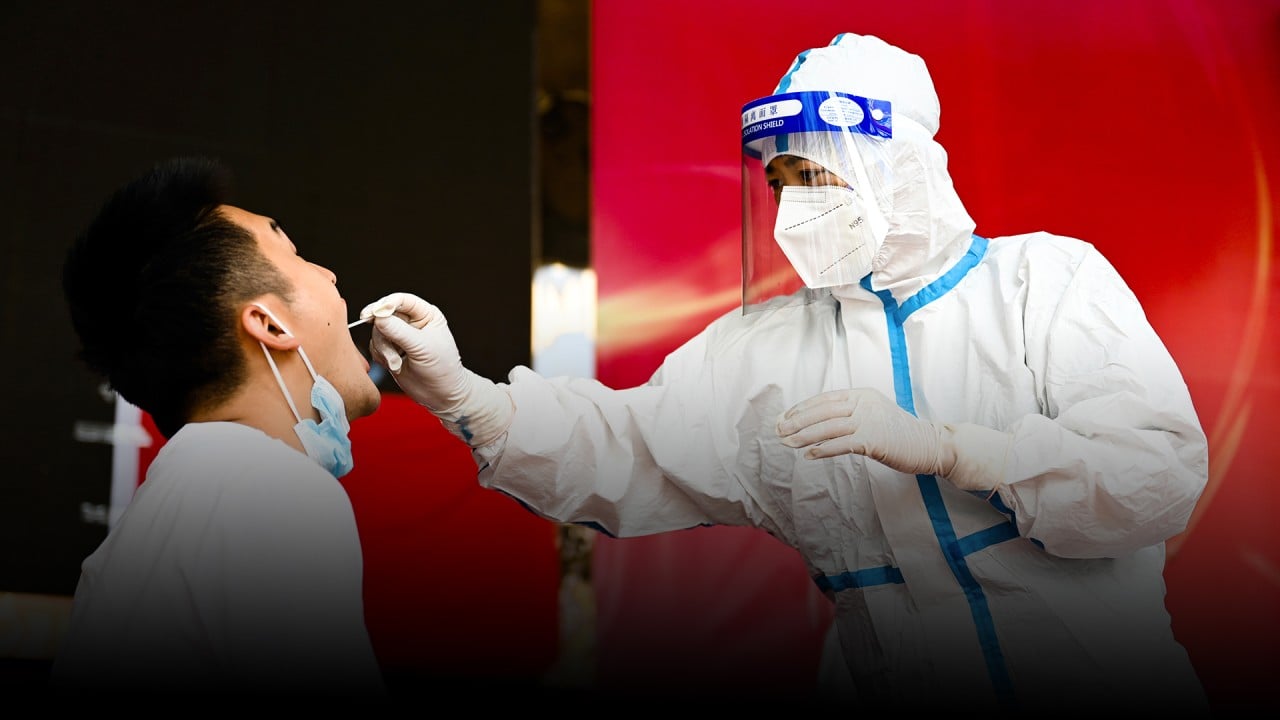
China’s Li Keqiang acknowledges slowing economic growth, but says Beijing has the ‘tools’ to cope with headwinds
- Premier Li Keqiang said at the Canton Fair on Thursday China is equipped to meet economic headwinds, including its power crisis
- He acknowledged growth in the third quarter had slowed, but major economic indicators remained at a reasonable level
China has “adequate tools” to tackle the economic challenges facing the country, including the nation’s current power crisis and high commodity prices, Premier Li Keqiang said on Thursday.
Though economic growth has slowed in the third quarter due to a number of factors, the government was confident China could meet its growth target of “above 6 per cent” for 2021, Li said at the opening of the Canton Fair in the southern manufacturing hub of Guangzhou.
“We have adequate tools in our toolbox to cope with such challenges, including the energy and electricity supply strains,” he said, adding policymakers would also strive to keep inflation in check.
Economic headwinds are gathering for China and a number of independent analysts have begun adjusting down their full-year economic growth estimates for the country.

04:01
Chinese manufacturing thrown into disarray as country's electricity crisis rolls on
While Li acknowledged the challenges, especially for small and medium-sized enterprises, he said China had done a good job stabilising the economy following the initial shock of the coronavirus pandemic, and major economic indicators remained at a reasonable level.
China’s No 2 official said the government would continue to support multilateralism, including the implementation of RCEP, and maintain stability of the industrial chain.
“We need to seize all opportunities, adhere to free trade, fair trade, and carry out fair trade in free trade,” he said.
The provincial secretary for Guangdong read out a letter from President Xi Jinping in which he said China is willing to join hands with the rest of the world to uphold true multilateralism and build an open international economy.
Nearly 8,000 companies from around the world will participate with on-site exhibitions at this week’s Canton Fair, the organisers said Wednesday.

06:05
As more countries ditch ‘zero-Covid’ policy, why is China opting to ‘wait and see’?
Before Covid-19, the 2019 spring session of the trade expo attracted 195,454 foreign buyers from 213 countries and regions across the world. The top five sources of buyers were from Hong Kong, India, the United States, South Korea and Thailand.
Leo Lee, who is in charge of China purchasing for Kawan Lama, which owns Indonesia’s major retail chains, said the company bought 4,000 standard containers of goods per month from the world’s second largest economy.
He said her company was eager to attend the Canton Fair in person because it was easier to view the latest manufacturing trends and products from leading enterprises, “which is difficult to see offline”.
“In the past couple years, the transformation and upgrading of China’s manufacturing industry has been very fast, many of the original [original equipment manufacturer] enterprises are beginning to build their own brands,” she said.
“The Canton Fair is an important venue to observe new trends.”
Additional reporting by Bloomberg

